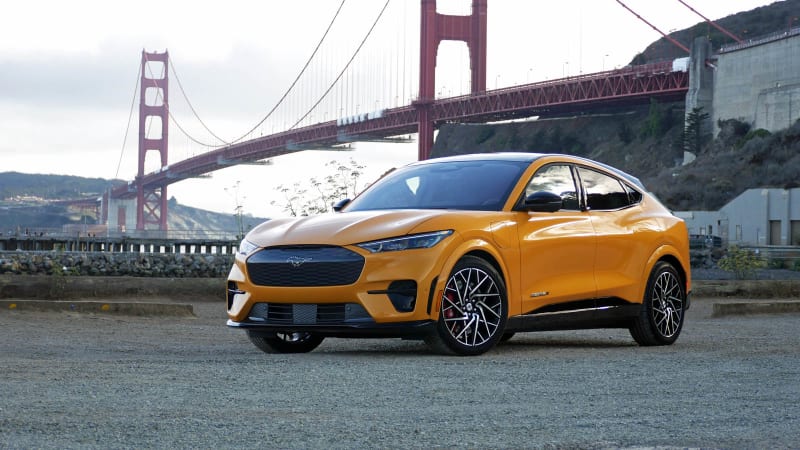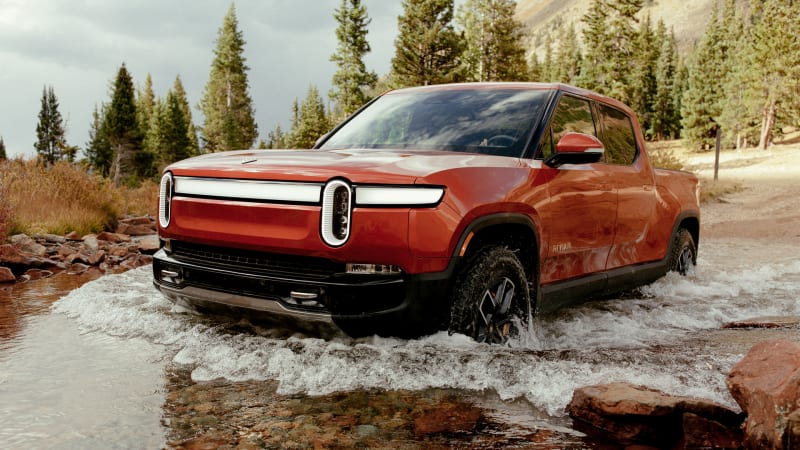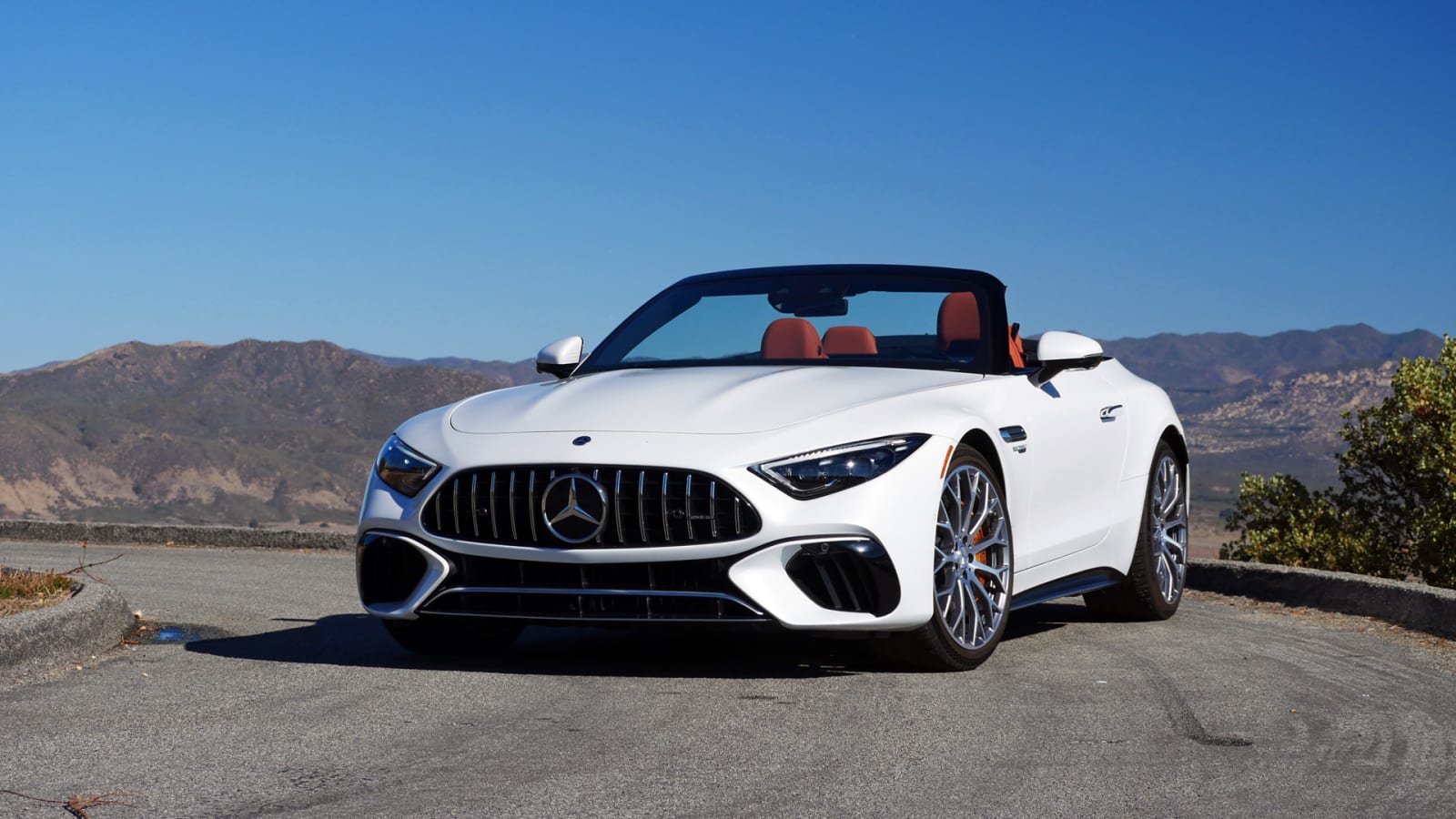You’ve read the headline. Do you think you’ll still be reading car reviews in 10 years? It’s something that is, perhaps not surprisingly, on the mind of someone who writes and edits car reviews for a living. If the answer is no, I hope I can come up with some other form of employment by the time 2032 rolls around.
But before I start taking TV/VCR repair correspondence school courses, let’s at least take a look at why I’m asking the question in the first place. There’s really two ways to look at it: the car side and the review side.
From the car perspective, if the majority of cars out there are autonomous electric transport pods, then who the hell wants to read about those for fun? My refrigerator autonomously keeps my beer cold with electricity, but I can tell you definitively I don’t sit around with my morning coffee reading the latest news and reviews on Fridgeblog. In this doomsday scenario for car enthusiasm, car reviews will strictly be for consumers, much like those for other consumer goods, with content types perhaps falling more along the lines of early adopters and mass market than anything resembling enthusiasm.
In the last year, though, I’ve seen plenty of signs that this autonomous electric transport pod doomsday isn’t on the horizon. First and foremost, I think we’re going to see autonomous flying taxis before mass market, citizen-owned autonomous cars. Which is to say, not soon. There are just too many technological, psychological, logistical and legal challenges for the foreseeable future.
Then there’s the electric part of the equation. The most interesting cars I drove in 2021, without question, were all electric. The Mercedes-Benz EQS, Porsche Taycan GTS and Ford Mustang Mach-E were equal parts fascinating and fantastic — two descriptors that should make you want to read about them. EVs that I have yet to drive, including the Rivian R1T, Lucid Air, Hyundai Ioniq 5 and Kia EV6, are those I have read about for fun and am eager to try — not just in a professional, I-have-to-drive-everything-cause-job reasons, but because I’m legitimately curious and interested as a car enthusiast.
Considering that we’re only at the very beginning of the industry’s EV conversion, just imagine what might be available in 10 years? Oh, there’ll definitely be anonymous transport appliances, much as there have been in the past powered by gasoline, but I don’t think we’ll be bereft of cool cars.
The “review” part is the trickier and more problematic element for people like me. For starters, what exactly is a review? Is it just a 1,500-word written article, read on desktop, tablet or mobile, that’s more or less consistent with what was established by print magazines long ago? Is it a highly formatted document created for people researching their next car, most likely integrated within online buying platforms? Or, is it a caption on an Instagram photo? Or a video loaded to YouTube or TikTok by one person as opposed to a publication that employees many?
Just last week, a 45-second video I shot as an afterthought while taking photos for the Mercedes-AMG SL 55 first drive reached (at the time of this writing) 2.6 million people on Facebook. There are at least 1,100 comments and 36,000 likes. Good grief. To be clear, I’m not boasting, I’m befuddled. Never mind views of the full written review itself, that’s more impressions than any of the hundreds of videos I’ve shot/appeared in for three publications and roughly 12 years. And most of those were produced by a talented group of videographers and editors trained to make things look professional and fantastic.
Except that doesn’t seem to be what people want on social media. A vertical video shot in 45 seconds on an old iPhone with ho-hum commentary is good enough, much as quick, ho-hum pictures of cars in my driveway can generate more Likes on Instagram than beautiful, professional(ish) pics I take with my good camera. If production values don’t seem to matter, if the attention span of readers/viewers can’t sit still for 1,500 words or 15 minutes, if one unexperienced person with a camera can get the job done what’s the point of employing all these experts? It’s for this very point that a senior editor at another publication recently mused to me that he thought our entire automotive media industry was, quite frankly, “screwed.”
Now, before I start getting angry texts from my co-workers to “shut the hell up, I have a mortgage,” let me now say that 45-second vertical videos shot about the rear-wheel steering of a fancy Mercedes is not the same thing as a car review. It’s something you watch while waiting for your Starbucks order, not unlike the video of my friend’s puppy going down a playground slide. It’s about passing or wasting time for a few seconds, not about actually indulging an interest or enhancing your knowledge.
I do think people still want to read and watch substantive content, and I don’t think that’s me yelling at a cloud. Books have survived this far, for goodness sake. I truly don’t believe it’s all doom and gloom. But, for argument sake, let’s say lengthier content is in fact toast, and that the moneys at be decide to stop spending all that time and money on traditional car reviews (and the people who create them) in favor of constantly rolling the viral content dice with an unending Gatling gun approach of cheap, easily produced snippets created by whomever.
The trouble with that is where those snippets live. It is TikTok, Facebook/Instagram, YouTube/Google and whatever else comes next that are still collecting much of the cash in this scenario. That might be fine for one person with a camera and microphone talking about an old G Wagen, and even for companies and brands trying to get that initial foothold in the marketplace, but in the long run, no company wants to have its fortunes rely so heavily, if entirely, on another.
Yet, how do you get people to look at your stuff without social media? My mother says she really just looks at Facebook to see recipes. When I noticed they were from only a small number of publications (versus her friend Gary who has a stand mixer), I asked why she didn’t just bookmark those publications’ actual websites to see their content? You’d actually be supporting them, the people producing the content you like, not Facebook. You’d also see even more recipes. There really wasn’t a good answer provided, but it’s ultimately simple: ease and habit.
Those are very hard things to counter. So, if publications won’t be able to rely on their own websites or apps to make money, if substantial reviews are deemed a poor investment in favor of viral content carpet bombing and if tastes actually are trending inexorably to quickly digested snippets, then yep, it sure seems like we’re totally screwed. That the cars we might be talking about are actually interesting won’t really matter.
Yikes, that got dark. OK, digging my way out. Inevitably, though, I think the answer will probably be somewhere in the middle, as it often is, the result of a great idea or innovation. We will lose players in the industry, but we’ll gain new and/or different ones. Some things will change, others will stay the same. To get there, though, people like me need to be open to change and willing to be those innovators. We can’t be like our ink-stained forebears who were convinced this internet thing was just a fad. Ultimately, we have to stay committed to creating, to entertaining, to educating and to helping. That’s why I got into this and why I keep doing this — well, and still getting to play with cars at 38 years old. Maybe you won’t be reading car reviews in 10 years, but if sadly so, it won’t be because the hard-working and passionate people creating those reviews today stopped caring.
Source: www.autoblog.com



